
Original Music Composer
Tsutomu lives alone in the mountains, writing essays, cooking Zen food with the vegetables he grows and the mushrooms he picks in the hills. His routine is happily disturbed when Machiko, his editor and love interest, occasionally visits. Tsutomu seems content with his daily life. On the other hand, he still hasn't let go of his wife's ashes, although she died 13 years ago...

Original Music Composer
Masao Adachi's first new film in six years that secretly started filming at the end of August. About the life of Tetsuya Yamagami, suspected assassin of former Prime Minister Shinzo Abe.

Original Music Composer
Born to an esteemed family, Inu-oh is afflicted with an ancient curse that has left him on the margins of society. When he meets the blind musician Tomona, a young biwa priest haunted by his past, Inu-oh discovers a captivating ability to dance. The pair quickly become business partners and inseparable friends as crowds flock to their electric, larger-than-life concerts. But when those in power threaten to break up the band, Inu-oh and Tomona must dance and sing to uncover the truth behind their creative gifts.

Original Music Composer
Yoshio is a man who works for the city's water department and live with his mother. He regularly visits to the SM Queen Miho, but he still cannot forget the legendary SM Queen Yukiko.

Self
The Unnameable Dance shows the life and dance of Tanaka Min, an elderly dancer in his 70s, in a multifaceted and dynamic manner.
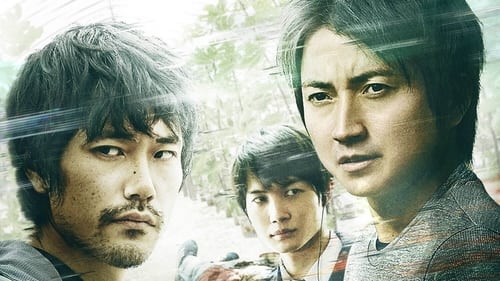
Original Music Composer
Shishikari is a remote island, which is behind the times. The island suffers from a decreasing population and declining industries. Keita Izumi (Tatsuya Fujiwara) begins to produce black fig on Shishikari Island. Because of his well received product, the island is close to receiving a 5 billion yen grant from the government, which is part of the goverment's policy to reinvigorate rural economy. The residents of the island are excited, but their peaceful days changes by the appearance of Mutsuo Komisaka. Keita Izumi and his friends Jun Tanabe (Kenichi Matsuyama) and Rookie Police Officer Shinichiro Moriya are suspicious about him. One night, Keita Izumi's daughter goes missing. Due to that, Keita Izumi, Jun Tanabe and Shinichiro Moriya happen to kill Mutsuo Komisaka. They decide to hide Mutsuo Komisaka’s murder to protect the future of the island and their families. It turns out Mutsuo Komisaka was a psycho killer. Police officers come to Shishikari Island to catch Mutsuo Komisaka.

Original Music Composer
This documentary follows a public housing complex set to be demolished in 2017 to make way for the reconstruction of the National Stadium in preparation for the 2020 Tokyo Olympics. Primarily a housing complex for the elderly, the residents average 65 years of age or older. Many live alone, and for decades they had lived together in harmony, helping one another through daily life.
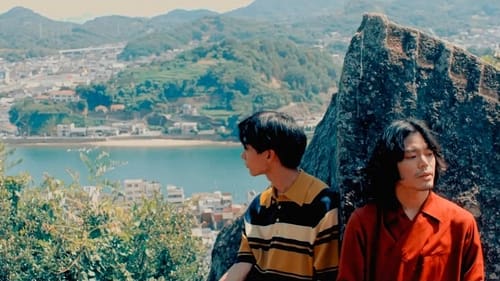
Original Music Composer
It is the middle of summer in Onomichi in the 1970s, and 22-year-old Akira returns home with Yoshioka, his senior at university. Akira offers his parents' house to Yoshioka, whom he likes, and suggests that they spend their summer vacation together. To keep the senior occupied, Akira comes up with the idea of inviting a girl to go out and play. He asks his childhood friend Fumie to find some girls who are bored, and Miko, who has a bit of an unusual personality, joins him, and the four of them start hanging out. Eventually, Yoshioka's eyes on Meeko grow hotter and hotter, which annoys Akira.

Original Music Composer
The documentary on Yamazaki Hiroaki, the student died in the First Haneda Incident of 8 October 1967.
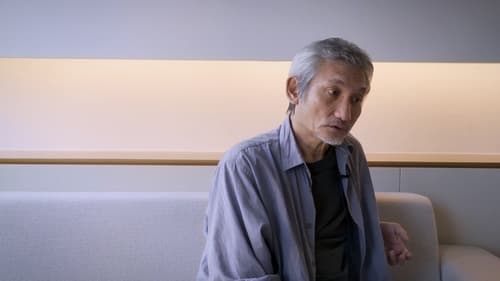
Original Music Composer
One of Hong Kong's most influential filmmakers, Ann Hui, becomes a “star” for the first time in Man Lim-chung's directorial debut. A forerunner of the New Wave, Hui’s tumultuous, forty-year career is an unequivocal testimony to her unyielding dedication to filmmaking, and her expedition into the metamorphic city. This biopic probes into the acclaimed director’s idiosyncratic world, where we witness her rashness and goofiness, as well as her humanistic concerns for the everyday nobodies which make her films so moving.
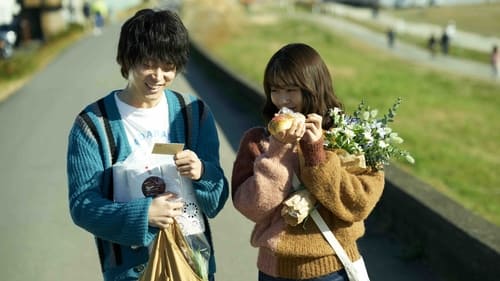
Original Music Composer
Two people meet each other after missing the last train home, leading to a beautiful relationship over five years.
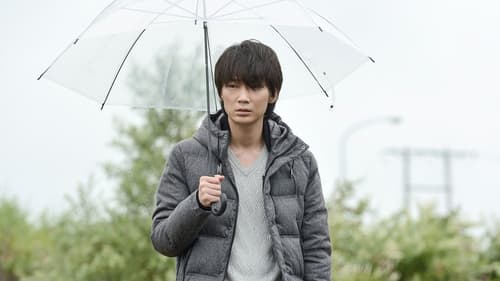
Original Music Composer
Konno moved to Iwate for his job. There, he meets his colleague Hiasa at work. They form a close bond while drinking together, fishing together and doing other activities. One day, Hiasa quits his job without saying anything to Konno. Shortly after, they meet again, but they cannot have that close feeling as they had before. They do not meet again. Time passes and Konno learns that Hiasa went missing. While looking for Hiasa, Konno learns a secret about Hiasa.
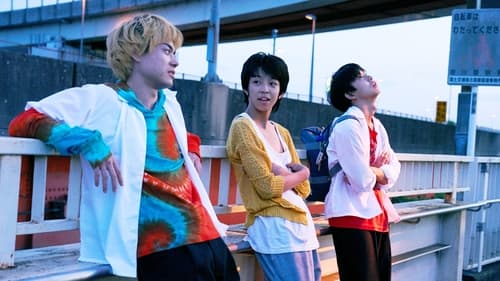
Original Music Composer
Tarō is a vagabond, a wannabe, an urchin, and not what anyone would call mainstream. He does not care. Do not even ask him about his background or age. He would not know and he would not bother. The man meets two others and he begins to experience a new set of conditions.

Original Music Composer
A companion piece to The Wages of Resistance: Narita Stories, which dealt with the protests against the construction of Narita Airport. Depicts the lives of youth who fought alongside farmers against the nation state. Farmers launched a protest movement after the government decided to build a giant airport on the farming land of Sanrizuka in Narita City. Youth who believed in their ability to change the world supported the farmers' protests. Fifty years have gone by. The camera examines what used to be there and brings to light the past era buried beneath Narita Airport.
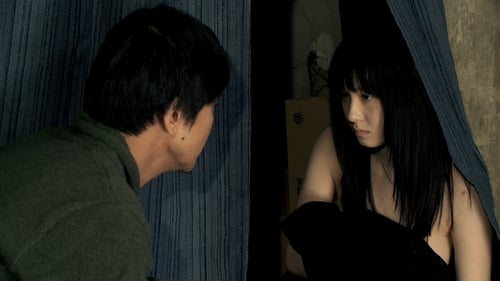
Original Music Composer
“Hana-Dama”—a flower in the wasteland. This flower is a symbol of earthly desires and every human is overwhelmed by desire and their rationality collapses wherever the flower is in bloom. And even today, the “Hana-Dama” continues to blossom profusely somewhere in the world. The story is set in a film theater, the facility keeps on closing one after another during recent years. The last day has come to a film theater which has been maintained by a film-loving owner, the staff, and their unique audiences. The symbol of human desire, “Hana-Dama,” blossoms at the theater and instigates people’s erratic behavior. Upon facing its closure, tremendous chaos that will be noted in the history of Japanese film takes place within this film theater.

Original Music Composer
A wordless man stages an unexplained hunger strike and the people surrounding him exploit his silence to further their own cause...
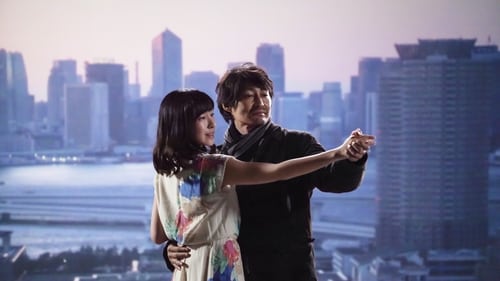
Original Music Composer
Takuji Kameoka is a 37-year-old bachelor whose occupation is a “miscellaneous actor”. His only interest is drinking. One day he falls in love and his boring life begins to change. The film is based on the book “Actor, Takuji Kameoka” by Akito Inui, a five-time nominee for Japan’s most prestigious literary prize, the Akutagawa Prize. Satoko Yokohama, a much-admired up-and-coming newcomer, directs the film and we can immediately tell that she is a special talent, with a unique understanding that flows through to her actors and crew.

Self
Pig heads, intestines, megaphones: all these and more have been thrown into crowds of loyal fans following the influential punk band THE STALIN or any of number of Michiro Endo's other bands since 1980. Taking a step in front of the camera, however, Endo offers a very different kind of encounter in this inspiring self-portrait. "Mother, I've Pretty Much Forgotten Your Face" follows the artist, a native of Nihonmatsu, Fukushima, on the 2011 nationwide solo tour celebrating his 60th birthday, which was interrupted by the Great East Japan Earthquake. Traveling, performing and talking with fellow musicians and activists, Endo reflects on the past and future of Fukushima, the legacy of Hiroshima, his upbringing and his feelings about his mother, communicated in the song from which the documentary is named.

Original Music Composer
Naho Takamiya is a 2nd year high school student. During the spring, Naho Takamiya receives a letter sent by herself from 10 years in the future. In the letter, she liked transfer student Kakeru Naruse. Kakeru Naruse carried emotional scars from his mother's suicide and he died one year later. 26-years-old Naho Takamiya thinks about Kakeru Naruse often. 2nd year high school student Naho Takamiya, with the knowledge of what she feels 10 years in the future, takes action to change her future.
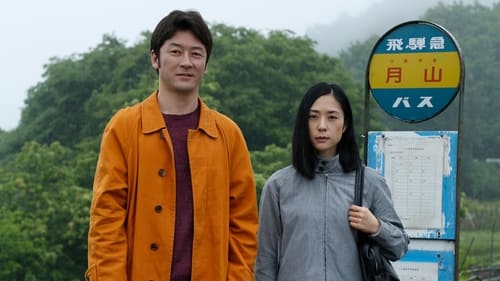
Original Music Composer
Mizuki’s husband Yusuke went missing for 3 years. He suddenly comes back home one day and asks Mizuki to go on a trip with him. Their trip consists of visiting the people that helped Yusuke on his previous travel. While travelling together, Misuki sees, touches and feels what Yusuke did for those 3 years.
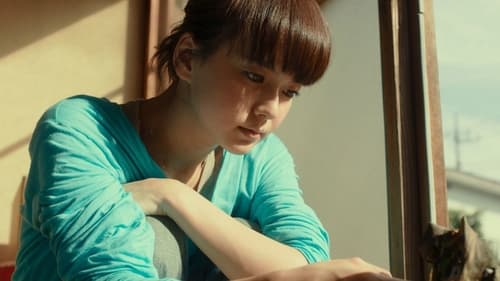
Original Music Composer
Shino Umemiya readily dates guys interested in her, because she believes that's better than being alone. She breaks up with her violent boyfriend after he discovered that she cheated on him. She moves to a new area to get a fresh new start on her life. There, Shino Umemiya meets her neighbor Kyoshiro Sugahara. He is also her manager at her new job. Shino Umemiya becomes interested in him, but he lives with mysterious woman Akari.

Original Music Composer
Performance by Takashi Makino with music composed by Otomo Yoshihide. A tribute for Teruto Soejima and Masayuki Takayanagi.

Original Music Composer
The Wages of Resistance is a feature-length documentary film that portrays an "extended span of time" of the protests against building Narita International Airport which have continued from the 1960's to today through documenting monologues of those whose lives were twisted by the movement.
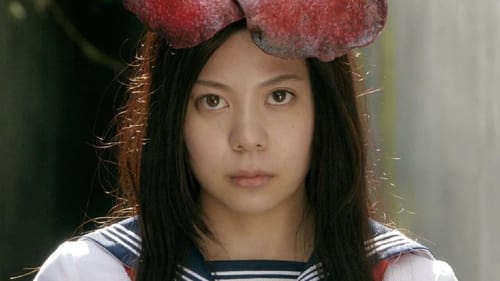
Original Music Composer
Transfer student Mizuki is bullied mercilessly by her classmate. Nevertheless, she is always able to maintain her composure. Kirie, who is also bullied, becomes interested in Mizuki and longs for her. The two become close.
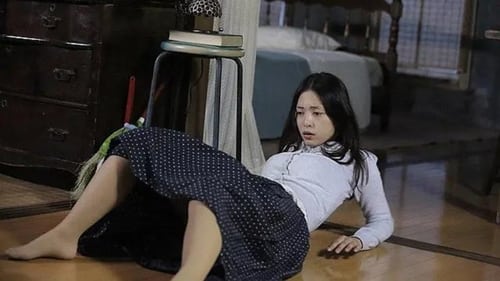
Original Music Composer
A singular deadpan comedy, The Passion tells a story of a young woman raised in a convent named Frances-ko (Mayuko Iwasa), after Saint Francesco. Distressed by not knowing about love and sex, she calls out for a sign from above, but instead hears a voice from below. A human-faced growth speaks to her from between her legs, constantly berating her, calling out "Woman, you are worthless!" Mr. Koga, as she names it, continues the verbal abuse, yet Frances-ko somehow adapts, forming an adversarial yet symbiotic relationship. This bizarre film, based on Kaoruko Himeno's acclaimed 1997 novel of the same name, is skillfully directed by Ryoko Yoshida, lensed by veteran cinematographer Akiko Ashizawa, grounded by Iwasa's show-stopping performance and enlivened by the hilarious Kanji Furutachi, who lends his voice to the chauvinistic Koga. The soundtrack boasts an unmissable eclectic score by legendary experimental musician and composer Otomo Yoshihide.

Original Music Composer
Married couple Aiko Tsumari and Ayumu Muko live a happy and peaceful life. Aiko is bit naive, while Ayumu works as a not so popular novelist. One day, a letter arrives for Ayumu. Because of this letter, the couple become estranged...

Self
The film explores the journeys and philosophies of a select group of experimental musicians including Keith Rowe, Evan Parker, Eddie Prevost, Otomo Yoshihide, Toshimaru Nakamura and Christian Fennesz.

Music
Set in Nagano Prefecture, the movie stars Shingo Mizusawa (8000 Miles) as an awkward 28-year-old temporary factory worker named Kaji; a character partially modeled after the perpetrator of the 2008 Akihabara massacre. His social interactions are limited to his postings on internet message boards until he starts hanging out with a co-worker named Tanaka (Shohei Uno) who suffers from the debilitating sleep disorder narcolepsy. The pair become involved in a predicament when they attempt to protect a girl named named Yuri (Ai Tamura) from their other co-worker Okada (Yasushi Fuchikami).

Music
A 6-year-old Tibetan boy leaves his family and flees to a refugee camp in northern India.

Music
A fiction set in Kobe city, Japan in 2010, a man and a woman meet the day before the 15th anniversary of the great Hanshin Awaji quake. Both experienced the quake as a child but left soon after the quake. During the course of the long night walk, their life after the quake and the complex relationship to the city of Kobe gradually surface.

Music
Former punk rocker Jonen, now a Buddhist priest, seems to have lost the meaning of his life. His manic depression handicaps him further. Music seems to be the only solution for him to exorcise his demons, against all obstacles and sound volume controllers.

Original Music Composer
Men and one woman have drifted to an uninhabited island. The only woman will try to survive by taking advantage of her own sexual attractiveness.

Music
A Crowd of Three tells the story of two men, Kenta & Jun, who grew up as almost brothers at a children's facility. Kenta & Jun now works as part of a demolition crew but become fed up with their jobs. The friends then decide to take a road trip up north to visit Kenta's brother at the Abashiri prison.

Self
From radical turntablism (Otomo Yoshihide) to laptop music innovation (Numb), via classical instrument hijacking (Sakamoto Hiromichi), Tokyo's avant-garde music scene is internationally known for its boldness. While introducing some of the greatest musicians of this scene, "We Don't Care About Music Anyway..." offers a kaleidoscopic view of Tokyo, confronting music and noise, sound and image, reality and representation, documentary and fiction.

Music
Based on the semibiographical novel by Jun Miura, Oh My Buddha is the classic summer coming-of-age story that is burned to a crisp with teenage angst, youthful dreams and that warm sense of folk zeitgeist of the 70s. The narrator is a first-year student at an all-boys Buddhist school. Jaded by his dull, ordinary life, he longs for the type of creative, liberal and forward life his idol Bob Dylan leads, writing rock songs alone in his room, imitating his hero's signature croon, until one day he got invited on an island trip of sexual liberation with his fellow liberal friend.
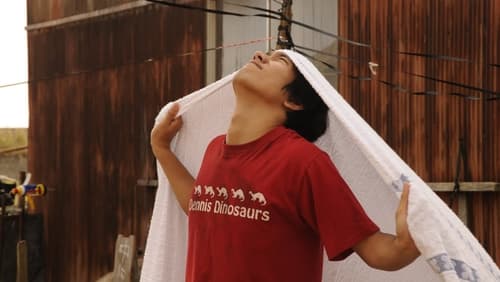
Music
Youjin is a quirky young man living in Aomori Prefecture, Japan. Yojin has a difficult time sitting still and can't focus on extended conversations. His life revolves around farming his grandmother's vegetable garden. Yojin experiences a new kind of feeling when he meets a pretty young lady named Machiko. The feelings are strong enough that he feels the need to be with her and gain her affection.

Self
Experimental documentary about Japanese experimental musician Otomo Yoshihide. Includes interviews with multiple musicians, artists, and writers as well as live footage.

Music
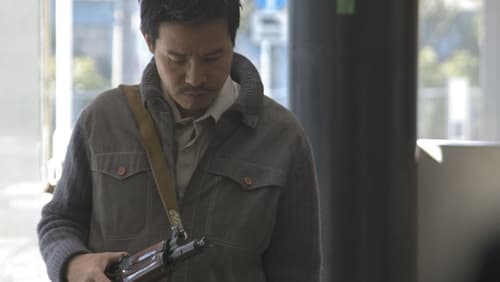
Original Music Composer
During a suicide attack on an airport, the hand grenade of 'M', one of three terrorists, malfunctions, leaving him captured. Exposed to maltreatment in prison, he slowly loses his grip on reality as he is forced to confront his ideological convictions.

Self
"AA" is a documentary about Akira Aida (mostly known as Aquirax Aida), a japanese music critic who introduced free jazz, improvisation, and progressive rock to Japan. It's based on interviews with 12 critics and musicians who had connections with him. This is a documentary that considers the past, present and future of improvisation.

Music
The film follows a young aspiring art university student, who falls in love with the older sister of his girlfriend. The heartrending longing and the true love that the three characters pursue, is pure, but almost painful. Is the person who stands next to you, is the person that gives you true comfort and love? Can you say that you love him/her from the bottom of your heart?

Sound
Video by Yasunori Ikunishi, Tetsuya Nagato, and Yasunori Kakegawa. Sound by Filament, AKA Otomo Yoshihide and Sachiko M.

Music
This new version of Nagasaki's Yami utsu shinzô (1982) is neither a remake nor a sequel. It is both those things, and at the same time it is also a documentary, a portrait of the consequences of passing time, and an occasionally very funny reflection on what the hell the point is of all this filmmaking business anyway. Shigeru Muroi and Takashi Naito, back then young hopefuls willing to take chances, now among the most established and recognisable actors in Japan, return to play the roles they assumed in the 1982 film, each of their characters having gone their own way. Alongside, another young couple (Honda and the ever-brilliant Eguchi) find themselves in the exact same situation as their older counterparts 25 years earlier. Their paths cross, an opportunity arises: for the elder two to redeem part of their own lives, for the younger couple to find a helping hand in their darkest hour.
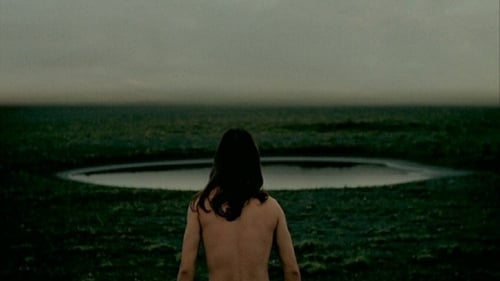
Original Music Composer
Mars Canal - Within absolute silence, a naked man wanders through a dark and depressing landscape recalling the excruciating details of his last encounter with his former lover. Mirror Hell - When a series of women are discovered with their faces burnt and skulls charred, a young detective investigates, discovering that a unique hand mirror is always found at the scene. Caterpillar - A war hero returns home with no limbs and only his eyesight remaining. His beautiful wife, tired of taking care of him, turns to torturing her crippled husband for amusement. Crawling Bugs - A sexy actress is returning home from a successful night on stage, until her limo driver decides that she should be coming home with him.

Music
A mysterious street-painter, Jouji, wanders aimlessly, homeless. Together with his homeless pals, he makes his living by selling his paintings on the street. His paintings, dynamically exploding on pieces of cardboard, catch the eyes of Kyoko, an art dealer. He can feel alive only if he keeps painting, but unable to find something to fill his void inside, he tries to drown himself in alcohol. Drawn to Jouji, Kyoko commissions him to paint for her. The two travel to a secluded mountain-side, and there Jouji becomes inspired both by the natural surroundings and Kyoko herself.

Music
Two children, each abandoned by their families, come together in the wake of the Sarin gas attack in Tokyo. Based on the true events of the deadly gas attacks perpetrated by members of the Aum Shinrikyo cult on the Tokyo subway system.

Self
Nor Noise is the first norwegian documentary about noise music. Movie Maker Tom Hovinbøle has from the start in 2001 interviewed a number of artists in the noise genre. The artists relay their thoughts on the phenomenon of noise music - what is it, where does it come from, what is the trade off when replacing traditional harmony and melody for pure audio experience, which possibilities can be explored? The movie explains the historical context of the genre, from the movement of Futurism and Luigi Russolo from before WWI to electronic experiments in the fifties, avantgarde in the sixties, industry and punk in the seventies to the final establishment of the noise genre at the end of the seventies in Japan. Adding to the flavour are concert performances.
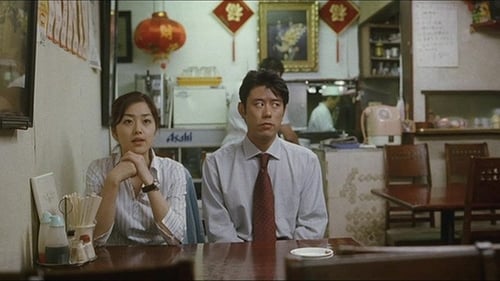
Music
An ordinary salary man, Junosuke, goes in search of his lover, Miharu, who disappeared one night when she handed him the key to her room, and promised to be back in five minutes. She had only gone out to buy apples at the nearby convenience store, because Junosuke has one for breakfast every morning. Slightly drunk from the cocktail he had had earlier, Junosuke falls asleep, and wakes up the next morning to find that Miharu had never returned.
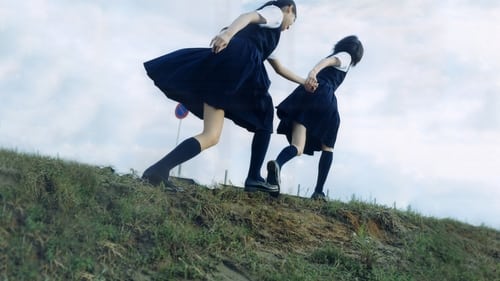
Music
Kayako Kirishima of the third year at a high school feels a sense of isolation in school life and vague admiration and uneasiness in the future. One day she makes friends with Endō who is isolated from her surroundings because she remained in the same class for another year. Kayako is strongly attracted by Endō who shows her a world that she didn't know.

Music
Each year, at the start of the fall school year in September, Japan suffers from typhoons. That same month, in a small elementary school in a mountainous region, Saburô, a new red-haired pupil has just arrived with the wind. The children of the village thought they recognized in this strange boy who came from the city the spirit that they called “Matasaburô, the wind”. During two weeks of autumn, Matasaburô and the other children will do various experiments in nature.

Music
If you loved movies such as Shonen Merikensack and GS Wonderland, then this one, which predates the former, will impress you as well. The story is set in the 80s rock scene and revolves around Nakajima (Kazunobu Mineta), the lead singer of a band called 'Speed Way'. Because he refuses to write trite, pop-friendly songs he is constantly at odds with his own record company. However, he refuses to bend on his rock principles simply for better record sales. The most interesting parts of this movie is how they pay homage to music icon, Bob Dylan who gave the filmmaker his blessing, which is no small feat itself, especially for a Japanese indie debut.
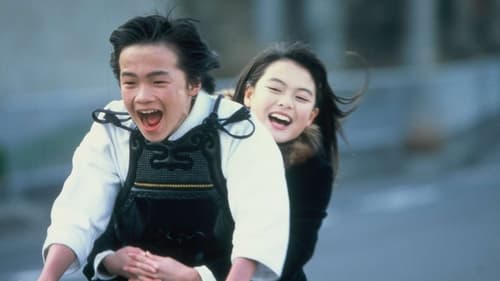
Music
Twelve year old Sei has hit puberty and is quickly becoming sexually aware, sometimes not as privately as he'd like; erections in school and other inopportune times plague him. He talks about it with his school friends, Kinta and Nyanko, in between their feuding over the affections of classmate Yumi, but can't figure out what to do about it.

Music
Listen to the fragile sounds in this experimental film. Taki, Toto, and Hajime go to a private school where drugs have taken over their lives. They began experimenting with curiosity but soon find themselves in an inescapable trap. After an accident at school and a trip to the hospital, the three friends find themselves at a crossroads.

Original Music Composer
In her brother's apartment where he died, Yuki finds a vacuum cleaner with its cord still hooked up to the outlet. She discovers that the circumstances surrounding her brother's supposed suicide are sketchy at best, yet no one has any answers. When she starts having hallucinations involving his ghost, however, she seeks some psychological help, eventually uncovering some things that she may have wished she'd left covered.

Music
Eye-popping digital moving image work with an equally arresting soundtrack from noise music heavies.
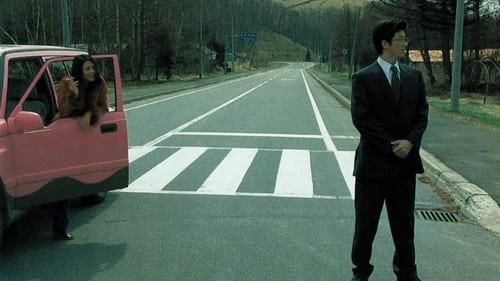
Original Music Composer
An alcoholic civil servant wakes up under a cherry tree in Tokyo next to a bar hostess with whom he's impulsively made a suicide pact. Though he's now changed his mind, he agrees to travel with her to Hokkaido, her preferred site for ending it all.

Music
This transnational production featuring a South African- born director, a Dutch leading man, and a Japanese cast and crew tells the story of a passionate love affair between a convict and a porn star, which is undone by greed and private ghosts. Escaping from the Japanese police, Jack meets Keiko, a money-hungry adult film actress and the younger sister of his ex-wife. He takes refuge in her flat and soon they fall in love. Jack is unable to leave her apartment because he quickly learns that both the police and the dreaded yakuza are after the criminal. He grows distraught and despondent, spending hour upon hour alone as Keiko works long hours on the set. At one point, Keiko visits the yakuza don who placed the hit on Jack and agrees to hand him over in exchange for a pile of cash. But she has one stipulation: that she get to spend three days with her soon-to-be deceased lover. The boss agrees only if she engages in kinky sex with him. The deal seems set until unforeseen events occur.

Original Music Composer
Japanese action film directed by Hiroshi Ando.

Music
A salaryman faces a major life change as his firm undergoes financial difficulties. To add to his troubles, a man claiming to be his long-estranged father shows up at his house requesting shelter. One of the best of Somai's seriocomic studies of the messiness of family life.

Original Music Composer
Minako, a Tokyo housewife, is depressed that everyone has an active life outside the home except her. Taking her inspiration from TV reports of a hitch-hiking chainsaw murderer, Minako decides to spice up her life by finding a young lover and running off with him by faking her kidnapping. While her family frets and worries, Minako has a wonderful time. Eventually, though, she decides it's time to go back to her family. Her lover, however, isn't ready for the fun to end, and Minako's fake kidnapping soon becomes all too real.
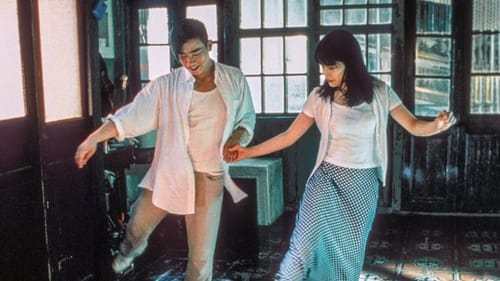
Music
Aggie is suffering a great pain after the death of her Grandmother. She has no one else so she moves in with her Godmother and her son, Louie. Aggie does not speak a single word, the pain she is going through is unimaginable, and this portrayal is simply stunning in its sadness and grief. Louie and Wah try to make her feel at home, and soon Aggie's passion for cooking shines through her sadness.
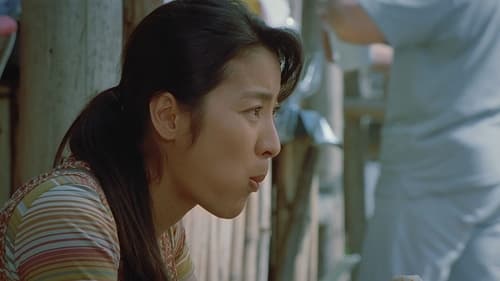
Music
A few years in the life of Ah Kam, starting with her joining action director Master Tung's team of regulars.
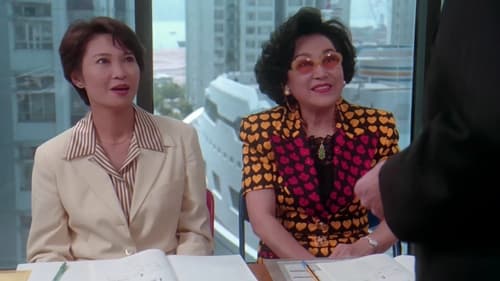
Music
The "Hu-Du-Men" (loosely translated as "stage door") is an imaginary line separating the stage from reality, and a line that must be crossed each and every night by Sum (Josephine Siao), the aging star of a Cantonese Opera troupe. Nearing the twilight of a storied career, Sum must face a variety of challenging new obstacles, including the possible emigration of her family come 1997, the appearance of a promising young actress (Anita Yuen), the hiring of a Western-schooled stage director (David Wu), the surprising revelation of her daughter's sexuality, and finally the reappearance of a shocking secret from her past. Through it all, Sum must retain her professionalism and dignity, as the "Hu-Du-Men" between the stage and her life begins to blur. Emotional, intimate direction and Raymond To's intelligent, relevant screenplay make Hu-Du-Men worthwhile cinema, but it's Josephine Siao's brilliant, emotionally dynamic performance that sets this film above the rest.

Music
When impoverished young bride Youyou (Zhang) collapses from hunger at the door of handsome buccaneer Pan Hao (You Yong), he immediately decides to have her, much to the chagrin of his current squeeze, Widow Ma (Jiang Yanqiang).

Music
Tells the story of the relationship between a widower with Alzheimer's disease and his daughter-in-law, May Sun, who is a housewife in her forties trying cope with the upheavals in her family.

Music
Xiao Dou is a shy and naive mailworker living in Beijing with his sister. When a coworker is fired for reading people's correspondences Xiao Dou takes over the same mail route. He soon finds himself indulging in the same curiosity, eventually developing an obsession. Xiao Dou chooses to spend time reading letters instead of socializing with friends or coworkers. As he becomes increasingly tied to the letters, he begins to intervene in the lives of those who write and receive the letters.

Music
Guan Jian wants to report the murder of his father who died 10 years ago. The alleged murderer whom Guan Jian accuses of the crime is his own mother.

Original Music Composer
The bus driver Nakatsuka Yukihiko saw in his dream the sexual fantasies involving one of his regular female passengers - Noriko Otomo. On the other hand, she sees the same dreams.
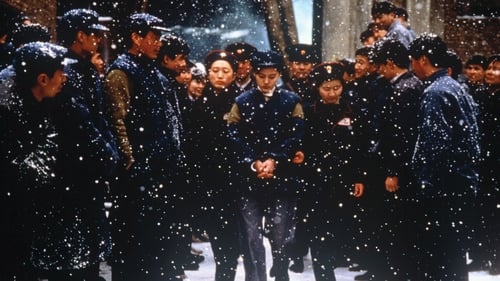
Music
The lives of a Beijing family throughout the 1950s and 1960s, as they experience the impact of the Hundred Flowers Campaign, the Great Leap Forward, and the Cultural Revolution.

Music
A Film by Hideaki Sasaki

Music
When Ryo's partner Makimura is killed, he and Makimura's sister Kaori team up to find out the truth, thus forming a new duo.

































































